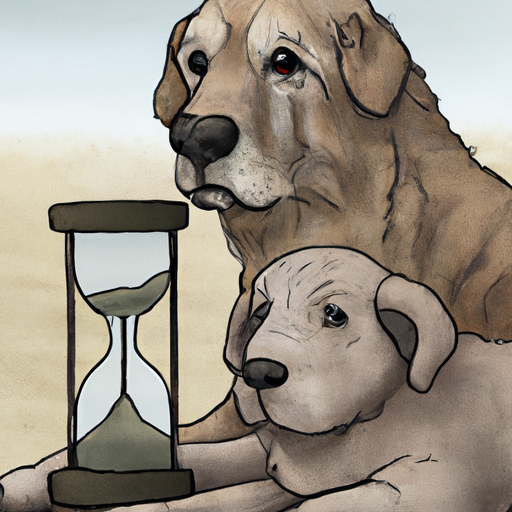Introduction
You, as a caring and devoted pet owner, might have wondered why larger dogs tend to have shorter lifespans compared to their smaller counterparts. This question has puzzled pet owners and scientists for years, but recent research has started to shed some light on these canine life expectancy discrepancies.
The Science Behind Size and Lifespan
First, let’s dive into the science of it. Larger dogs age at an accelerated pace, as their larger bodies mean they grow faster. This rapid growth can lead to an earlier onset of health problems.
- Biological stress: Larger dogs are subject to more biological stress, which can hasten the aging process.
- Cellular damage: Larger bodies mean more cells, which in turn means a higher chance of cellular damage.
- Metabolic rate: Larger dogs have a higher metabolic rate, which can put more strain on their bodies.
Health Complications in Larger Dogs
Unfortunately, larger dogs are prone to more health complications, which can contribute to their shorter lifespans. These can include:
- Heart disease
- Cancer
- Joint or bone disease
- Digestive problems
- Immune disorders
Breed Specific Lifespans
| Breed | Average Lifespan |
|---|---|
| Chihuahua | 14-16 years |
| Toy Poodle | 12-15 years |
| Labrador Retriever | 10-12 years |
| German Shepherd | 9-13 years |
| Saint Bernard | 8-10 years |
As you can see from the table above, smaller breeds like Chihuahuas and Toy Poodles tend to live longer than larger breeds like German Shepherds and Saint Bernards.
Keeping Your Large Dog Healthy
Even though larger dogs may not live as long as smaller dogs, there are things you can do to keep your large dog healthy and extend their lifespan.
- Regular vet check-ups: Regular vet check-ups can help detect any health issues early.
- Proper nutrition: Feeding your dog a balanced diet can keep them healthy and prevent obesity, which can lead to other health issues.
- Regular exercise: Regular exercise can help keep your dog’s weight in check and keep their heart healthy.
FAQs
1. Why do larger dogs have shorter lifespans?
Larger dogs age at an accelerated pace due to their size. They are also prone to more health complications, which can contribute to their shorter lifespan.
2. What can I do to help my large dog live longer?
Regular vet check-ups, a balanced diet, and regular exercise can all help extend your large dog’s lifespan.
3. Are all large breeds prone to the same health issues?
No, different breeds can be prone to different health issues. It’s important to research your dog’s breed to understand what health problems they may be prone to.
4. Are there exceptions to the rule that smaller dogs live longer?
Yes, there are always exceptions. Some small breeds may have breed-specific health issues that can shorten their lifespan, and some large dogs may live longer than the average for their size.
By understanding the science behind why larger dogs tend to have shorter lifespans, you can better care for your pet and potentially extend their life. Remember, it’s not just about quantity of years, but the quality of life you provide for your furry friend.



